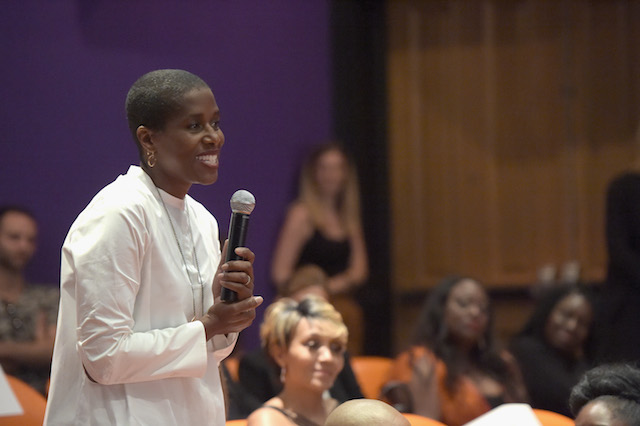This fall, America—and particularly Black America—is falling in teary-eyed love with "Queen Sugar," the family drama that director Ava DuVernay created for the OWN Network. But the backstory on this series set on a sugarcane farm in southern Louisiana is not just the result of the dynamic duo of DuVernay and Oprah Winfrey. It owes its greatness to a trio of women, beginning with Natalie Baszile, the author of the 2015 novel from which the series was adapted. Part biography, part passionate pushback against what she saw as a narrow landscape of contemporary Black literature, Baszile wrote a story as lyrical and intimate as the one which is now on screens. And though "Queen Sugar" is her first novel, a decade-plus undertaking, there’s a simple reason why she has been able to give her “blessing” to it being revisited, re-imagined and reintroduced to a new audience: DuVernay’s vision of Blackness is as expansive and lush as her own.
This is a story largely about homecoming and geography. How did those themes inspire your writing?
My dad was born and raised in Louisiana in a small town close to the Texas border. I’m from Los Angeles, but when I visited relatives as a young adult, I fell in love with Louisiana. Everyone was so warm and welcoming and I decided to start writing the story of a family. Five years into the novel, I went to a friend’s birthday party and she lives smack in the middle of sugarcane country. I didn’t even know it existed before then—my family farmed catfish and rice. I dropped sugarcane into the novel and it meant everything. It was a chance to share a story I didn’t think many readers knew a lot about.
You also didn’t know a lot about it. What was your learning process?
Once I realized my knowledge about sugarcane was about an inch deep, I started going to Louisiana four or five times a year for six years. I planted sugarcane alongside migrant workers. I have gone to the sugar mill. I have been in the field in the middle of August planting.
Also, when I came to visit, part of my strategy was to leave myself open to experience. So I was able to do things tangentially tied to the culture of sugarcane. Once I was there during a Black zydeco trail ride. All over Louisiana, there are Black cowboy organizations that come together for these communal parties, when hundreds of people gear up their horses. It is a beautiful sight to see these Black cowboys. Many of those experiences—like the annual sugarcane festival—made it into the book. Readers could have this whole world, not just the experience of a family.
Another major theme is the plight of the black farmer.
Yes. That has always been a passion of mine. One of my mentors in Louisiana was an elder, retired farmer. I would go to see him and we’d talk about his struggles, like the trouble he had getting loans from banks when White farmers had easy access. That was part of what I wanted to include in the story—not just sugarcane, but that Black farmers nationally have historically had these problems.
It took 11 years to write the book. And less than one year after publication, it’s optioned to be a TV show—by Oprah. What is that moment like of finding out?
It was on my birthday. I was driving with my daughter and my agent called and said she had just heard from the people at OWN. I hadn’t even allowed myself to consider it. But I get the call and it’s like, "Holy cow!"
Once the shock wore off, how was the experience of seeing the series?
It’s beautiful. I love the pacing, the deep dive into the characters, the soundtrack. It’s rich and sensual and textured.
Many things have changed from the novel, including the addition of the character played by Rutina Wesley. Was it strange to see that DuVernay had done what she’s called “a remix” on your book?
Part of my motivation in writing "Queen Sugar" is I wanted to tell a story about people whose life experience mirrored my own. I wanted to tell a story about a family that’s had its struggles but isn’t broken in some stereotypical way. In my heart, I need African-American readers to see ourselves portrayed as we truly are—complicated, nuanced and loving, which is the way we used to be portrayed in books.
I’d asked Ava to maintain the heart and spirit of what I wrote, and to continue the [conversations about] Black farmers and how many Black men are in prison. The heart and spirit that I poured into the novel resonated with Ava, and it is what you see on the screen. It makes it very easy for me to release and give this project my blessing.
Ayana Byrd is a journalist whose work has also appeared in The New York Times, Essence and Fast Company.
